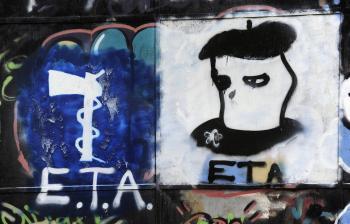The latest announcement by the Basque terrorist group ETA that they were declaring a permanent, verifiable ceasefire in their struggle for nationhood was greeted with cool skepticism by the Spanish government. It was called “no news” by the First Deputy Prime Minister and Interior Minister Alfredo Perez Rubalcaba. (To read the reaction on ceasefire on the Streets of Spain click HERE )
It is not the first time ETA has announced a ceasefire—and on past occasions, the ETA has ruptured the peace without notice. So this time, the group will have to do much more in order to gain trust and credibility both with Spanish and Basque people. Spanish Prime Minister José Luis Rodríguez Zapatero has demanded nothing less than for the ETA to lay down its arms and disband permanently.





